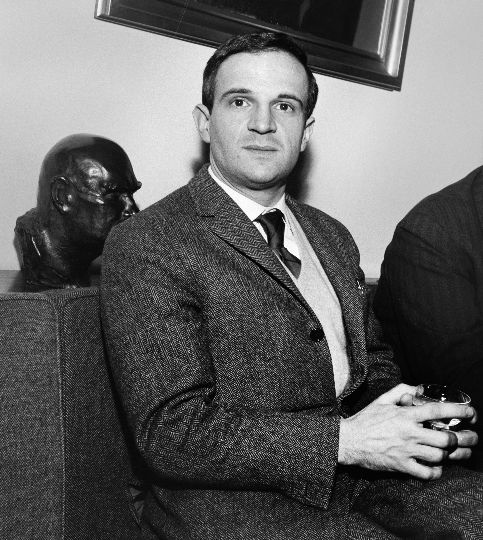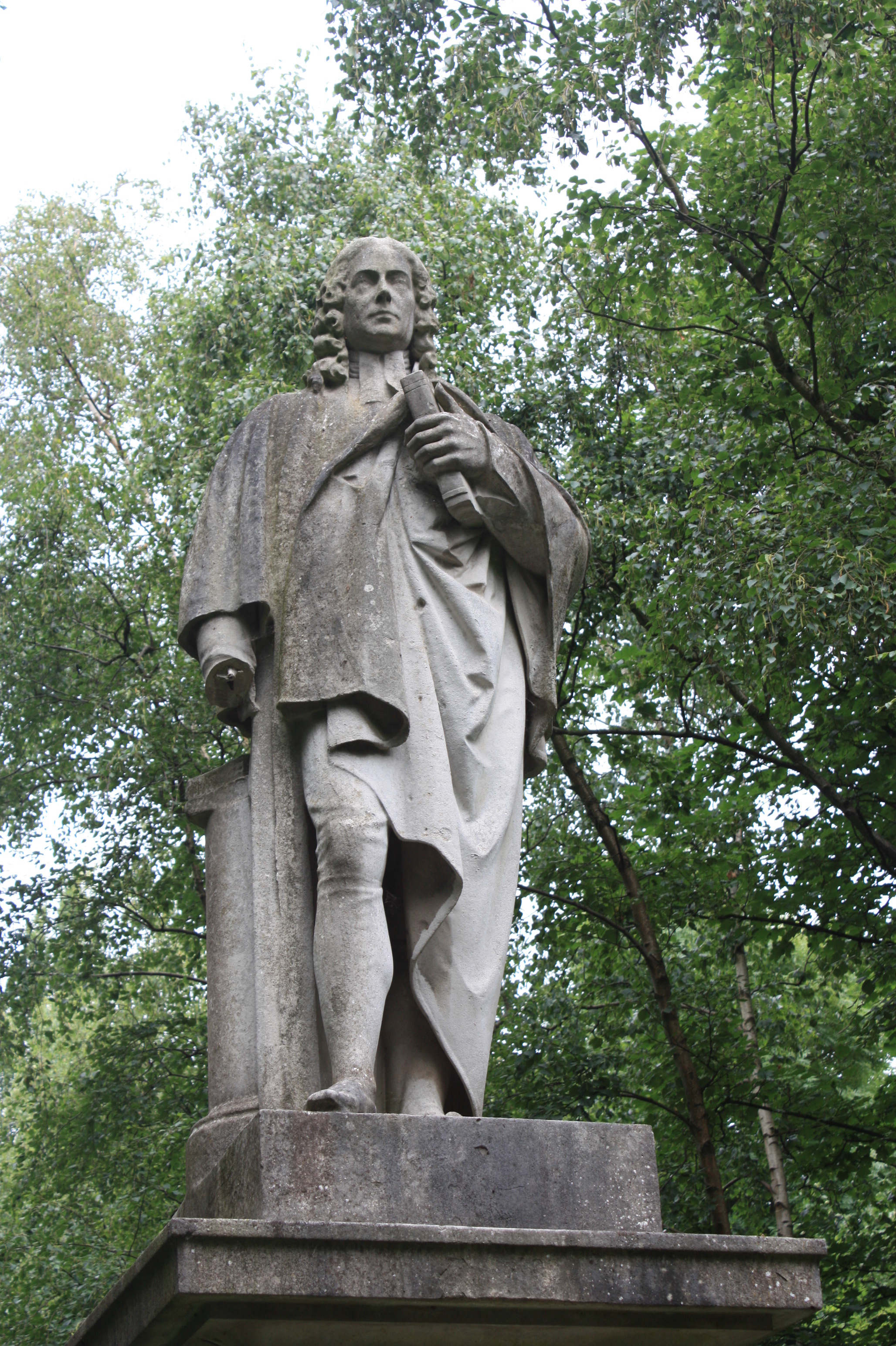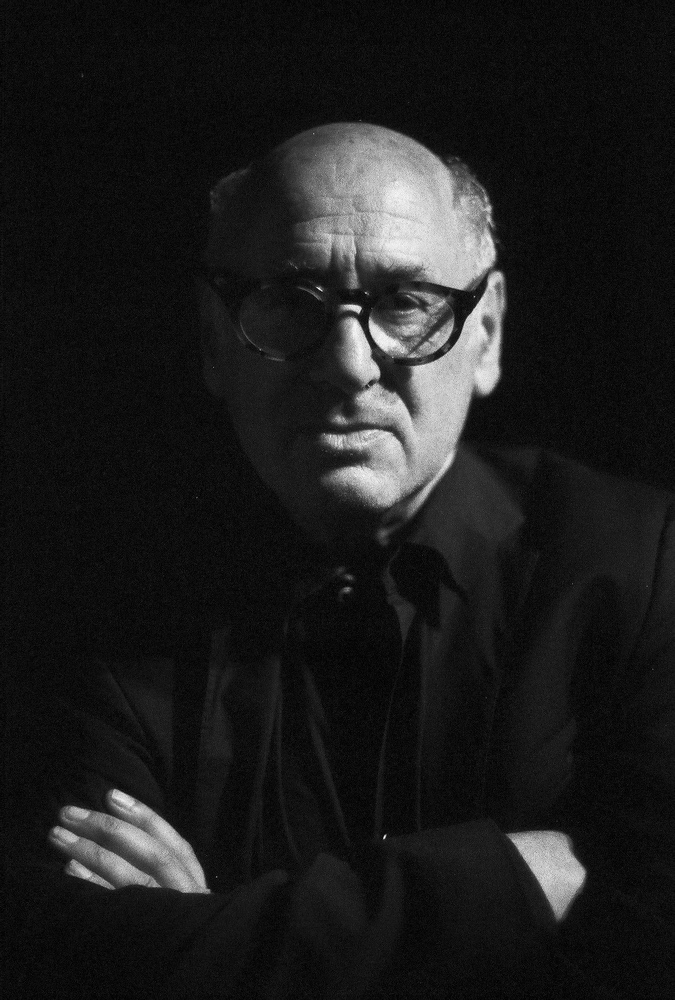|
Promenade (The Divine Comedy Album)
''Promenade'' is the third album by Irish chamber pop band the Divine Comedy, released in 1994 on Setanta Records. Background Recording ''Promenade'', like its predecessor, ''Liberation'', was recorded by frontman Neil Hannon and co-producer Darren Allison, with the addition of a string quartet, as well as oboe/cor anglais courtesy of Joby Talbot, thus marking Talbot's first appearance with the band. Talbot would go on to become the arranger for most of the Divine Comedy's post-''Casanova'' work, even co-writing two of the band's songs. Concept One recurring element in ''Promenade'' is water, mentioned in one way or another in the songs "Bath", "A Seafood Song", "Geronimo", "The Summerhouse", "Neptune's Daughter" and "Tonight We Fly". The North Sea, itself, even plays a part in the album: producer Darren Allison made field recordings at North Blyth and Druridge Bay on the Northumberland Coast, which can be heard at the beginning of "Bath" and again in "Neptune's Daughter". Ano ... [...More Info...] [...Related Items...] OR: [Wikipedia] [Google] [Baidu] |
The Divine Comedy (band)
The Divine Comedy are a pop band from Northern Ireland, formed in 1989 and fronted by Neil Hannon. Hannon has been the only constant member of the group, playing, in some instances, all of the non-orchestral instrumentation except drums. The band has released 12 studio albums. Between 1996 and 1999, nine singles released by the band made the UK Top 40, including the 1999 top-ten hit "National Express". History The beginning and early success (''Fanfare'' to ''Promenade'') The Divine Comedy were founded in 1989, by Neil Hannon who had been the only ever-present member of the band until he was joined by John McCullagh and Kevin Traynor. Their first album, '' Fanfare for the Comic Muse'', enjoyed a minor success and was later deleted. A couple of equally unsuccessful EPs – ''Timewatch'' (1991) and ''Europop'' (1992) – followed, with newly recruited member John Allen handling lead vocals on some tracks. After the commercial failure of the ''Europop'' EP, this line-up soon f ... [...More Info...] [...Related Items...] OR: [Wikipedia] [Google] [Baidu] |
Aphrodite
Aphrodite ( ; grc-gre, Ἀφροδίτη, Aphrodítē; , , ) is an ancient Greek goddess associated with love, lust, beauty, pleasure, passion, and procreation. She was syncretized with the Roman goddess . Aphrodite's major symbols include myrtles, roses, doves, sparrows, and swans. The cult of Aphrodite was largely derived from that of the Phoenician goddess Astarte, a cognate of the East Semitic goddess Ishtar, whose cult was based on the Sumerian cult of Inanna. Aphrodite's main cult centers were Cythera, Cyprus, Corinth, and Athens. Her main festival was the Aphrodisia, which was celebrated annually in midsummer. In Laconia, Aphrodite was worshipped as a warrior goddess. She was also the patron goddess of prostitutes, an association which led early scholars to propose the concept of "sacred prostitution" in Greco-Roman culture, an idea which is now generally seen as erroneous. In Hesiod's ''Theogony'', Aphrodite is born off the coast of Cythera from the foam (, ) ... [...More Info...] [...Related Items...] OR: [Wikipedia] [Google] [Baidu] |
Jean-Pierre Melville
Jean-Pierre Melville (; born Jean-Pierre Grumbach; 20 October 1917 – 2 August 1973) was a French filmmaker and actor. Among his films are ''Le Silence de la mer'' (1949), ''Bob le flambeur'' (1956), '' Le Doulos'' (1962), ''Le Samouraï'' (1967), ''Army of Shadows'' (1969) and ''Le Cercle Rouge'' (1970). While with the French Resistance during World War II, he adopted the pseudonym Melville as a tribute to his favorite American author Herman Melville. He kept it as his stage name once the war was over. Spiritual father of the French New Wave, he has influenced new generations of filmmakers across the world. Life and career Jean-Pierre Grumbach was born in 1917 in Paris, France, the son of Berthe and Jules Grumbach. His family were Alsatian Jews. After the fall of France in 1940 during World War II, during which he was evacuated from Dunkirk as a soldier in the French Army, Grumbach entered the French Resistance to oppose the German Nazis who occupied the country. He adopted ... [...More Info...] [...Related Items...] OR: [Wikipedia] [Google] [Baidu] |
Breathless (1960 Film)
''Breathless'' (french: À bout de souffle, lit=Out of Breath) is a 1960 French crime drama film written and directed by Jean-Luc Godard. It stars Jean-Paul Belmondo as a wandering criminal named Michel, and Jean Seberg as his American girlfriend Patricia. The film was Godard's first feature-length work and represented Belmondo's breakthrough as an actor. ''Breathless'' is an influential example of French New Wave (''nouvelle vague'') cinema. Along with François Truffaut's ''The 400 Blows'' and Alain Resnais's ''Hiroshima mon amour'', both released a year earlier, it brought international attention to new styles of French filmmaking. At the time, ''Breathless'' attracted much attention for its bold visual style, which included then unconventional use of jump cuts. Upon its initial release in France, the film attracted over two million viewers. It has since been considered one of the best films ever made, appearing in ''Sight & Sound'' magazine's decennial polls of filmmakers a ... [...More Info...] [...Related Items...] OR: [Wikipedia] [Google] [Baidu] |
Jean-Luc Godard
Jean-Luc Godard ( , ; ; 3 December 193013 September 2022) was a French-Swiss film director, screenwriter, and film critic. He rose to prominence as a pioneer of the French New Wave film movement of the 1960s, alongside such filmmakers as François Truffaut, Agnès Varda, Éric Rohmer, and Jacques Demy. He was arguably the most influential French filmmaker of the post-war era. According to AllMovie, his work "revolutionized the motion picture form" through its experimentation with narrative, continuity editing, continuity, film sound, sound, and cinematography, camerawork. His most acclaimed films include ''Breathless (1960 film), Breathless'' (1960), ''Vivre sa vie'' (1962), ''Contempt (film), Contempt'' (1963), ''Bande à part (film), Band of Outsiders'' (1964), ''Alphaville (film), Alphaville'' (1965), ''Pierrot le Fou'' (1965), ''Masculin Féminin'' (1966), ''Weekend (1967 film), Weekend'' (1967), and ''Goodbye to Language'' (2014). During his early career as a film critic f ... [...More Info...] [...Related Items...] OR: [Wikipedia] [Google] [Baidu] |
Jules Et Jim
''Jules and Jim'' (french: Jules et Jim ) is a 1962 French New Wave romantic drama film, directed, produced and written by François Truffaut. Set before and after World War I, it describes a tragic love triangle involving French Bohemian Jim (Henri Serre), his shy Austrian friend Jules (Oskar Werner), and Jules's girlfriend and later wife Catherine ( Jeanne Moreau). The film is based on Henri-Pierre Roché's 1953 semi-autobiographical novel describing his relationship with young writer Franz Hessel and Helen Grund, whom Hessel married. Truffaut came across the book in the mid-1950s while browsing through some secondhand books at a shop along the Seine in Paris. He later befriended the elderly Roché, who had published his first novel at the age of 74. The author approved of the young director's interest in adapting his work to another medium. The film won the 1962 Grand Prix of French film prizes, the Étoile de Cristal, and Jeanne Moreau won that year's prize for best act ... [...More Info...] [...Related Items...] OR: [Wikipedia] [Google] [Baidu] |
François Truffaut
François Roland Truffaut ( , ; ; 6 February 1932 – 21 October 1984) was a French film director, screenwriter, producer, actor, and film critic. He is widely regarded as one of the founders of the French New Wave. After a career of more than 25 years, he remains an icon of the Cinema of France, French film industry, having worked on over 25 films. Truffaut's film ''The 400 Blows'' (1959) is a defining film of the French New Wave movement, and has four sequels, ''Antoine et Colette'' (1962), ''Stolen Kisses'' (1968), ''Bed and Board (1970 film), Bed and Board'' (1970), and ''Love on the Run (1979 film), Love on the Run'' (1979). Truffaut's 1973 film ''Day for Night (film), Day for Night'' earned him critical acclaim and several awards, including the BAFTA Award for Best Film and the Academy Award for Best Foreign Language Film. His other notable films include ''Shoot the Piano Player'' (1960), ''Jules and Jim'' (1962), ''The Soft Skin'' (1964), ''The Wild Child'' (1970), ''T ... [...More Info...] [...Related Items...] OR: [Wikipedia] [Google] [Baidu] |
French New Wave
French New Wave (french: La Nouvelle Vague) is a French art film movement that emerged in the late 1950s. The movement was characterized by its rejection of traditional filmmaking conventions in favor of experimentation and a spirit of iconoclasm. New Wave filmmakers explored new approaches to editing, visual style, and narrative, as well as engagement with the social and political upheavals of the era, often making use of irony or exploring existential themes. The New Wave is often considered one of the most influential movements in the history of cinema. The term was first used by a group of French film critics and cinephiles associated with the magazine '' Cahiers du cinéma'' in the late 1950s and 1960s. These critics rejected the ''Tradition de qualité'' ("Tradition of Quality") of mainstream French cinema, which emphasized craft over innovation and old works over experimentation. This was apparent in a manifesto-like 1954 essay by François Truffaut, ''Une certaine tenda ... [...More Info...] [...Related Items...] OR: [Wikipedia] [Google] [Baidu] |
Horace
Quintus Horatius Flaccus (; 8 December 65 – 27 November 8 BC), known in the English-speaking world as Horace (), was the leading Roman lyric poet during the time of Augustus (also known as Octavian). The rhetorician Quintilian regarded his ''Odes'' as just about the only Latin lyrics worth reading: "He can be lofty sometimes, yet he is also full of charm and grace, versatile in his figures, and felicitously daring in his choice of words."Quintilian 10.1.96. The only other lyrical poet Quintilian thought comparable with Horace was the now obscure poet/metrical theorist, Caesius Bassus (R. Tarrant, ''Ancient Receptions of Horace'', 280) Horace also crafted elegant hexameter verses (''Satires'' and '' Epistles'') and caustic iambic poetry ('' Epodes''). The hexameters are amusing yet serious works, friendly in tone, leading the ancient satirist Persius to comment: "as his friend laughs, Horace slyly puts his finger on his every fault; once let in, he plays about the heartstrin ... [...More Info...] [...Related Items...] OR: [Wikipedia] [Google] [Baidu] |
John Dryden
'' John Dryden (; – ) was an English poet, literary critic, translator, and playwright who in 1668 was appointed England's first Poet Laureate. He is seen as dominating the literary life of Restoration England to such a point that the period came to be known in literary circles as the Age of Dryden. Romanticist writer Sir Walter Scott called him "Glorious John". Early life Dryden was born in the village rectory of Aldwincle near Thrapston in Northamptonshire, where his maternal grandfather was the rector of All Saints. He was the eldest of fourteen children born to Erasmus Dryden and wife Mary Pickering, paternal grandson of Sir Erasmus Dryden, 1st Barone t (1553–1632), and wife Frances Wilkes, Puritan landowning gentry who supported the Puritan cause and Parliament. He was a second cousin once removed of Jonathan Swift. As a boy, Dryden lived in the nearby village of Titchmarsh, where it is likely that he received his first education. In 1644 he was sent to Westminst ... [...More Info...] [...Related Items...] OR: [Wikipedia] [Google] [Baidu] |
Isaac Watts
Isaac Watts (17 July 1674 – 25 November 1748) was an English Congregational minister, hymn writer, theologian, and logician. He was a prolific and popular hymn writer and is credited with some 750 hymns. His works include "When I Survey the Wondrous Cross", "Joy to the World", and "Our God, Our Help in Ages Past". He is recognized as the "Godfather of English Hymnody"; many of his hymns remain in use today and have been translated into numerous languages. Life Watts was born in Southampton, Hampshire, England, in 1674 and was brought up in the home of a committed religious nonconformist; his father, also Isaac Watts, had been incarcerated twice for his views. Watts had a classical education at King Edward VI School, Southampton, learning Latin, Greek, and Hebrew. Watts displayed a propensity for rhyme from an early age. He was once asked why he had his eyes open during prayers, to which he responded: He received corporal punishment for this, to which he cried: Watts co ... [...More Info...] [...Related Items...] OR: [Wikipedia] [Google] [Baidu] |
Michael Nyman
Michael Laurence Nyman, Order of the British Empire, CBE (born 23 March 1944) is an English composer, pianist, libretto, librettist, musicologist, and filmmaker. He is known for numerous film soundtrack, scores (many written during his lengthy collaboration with the film director, filmmaker Peter Greenaway), and his multi-platinum The Piano (soundtrack), soundtrack album to Jane Campion's ''The Piano''. He has written a number of operas, including ''The Man Who Mistook His Wife for a Hat (opera), The Man Who Mistook His Wife for a Hat''; ''Letters, Riddles and Writs''; ''Noises, Sounds & Sweet Airs''; ''Facing Goya''; ''Man and Boy: Dada''; ''Love Counts''; and ''Sparkie: Cage and Beyond''. He has written six concerti, five string quartets, and many other chamber music, chamber works, many for his Michael Nyman Band. He is also a performing pianist. Nyman prefers to write opera over other forms of music. Early life and education Nyman was born in Stratford, London, Stratford ... [...More Info...] [...Related Items...] OR: [Wikipedia] [Google] [Baidu] |






